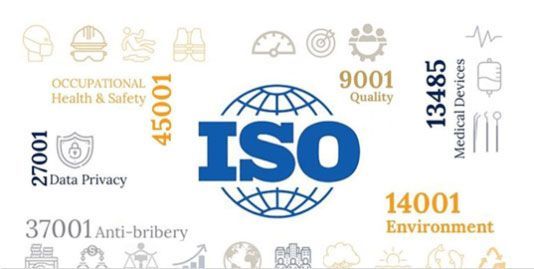Discover why it is a great moment to delve into this strategic discipline!
Supply Chain Management is the important act of orchestrating the flow of products and services across the organization, through the transformation of raw materials into final products, to maximize value and optimize profitability
.
The current concept of Supply Chain Management came about, at the turn of the millennium, as an important area for future productivity improvements. With technological advancement, integration of the highly fragmented management and control of information and resources was made possible. This allowed a new range of production and distribution systems and the emergence of supply chain management as a complex series of activities focused on building value and competitiveness.
Currently, supply chain management takes on a strategic role in organizations as it aligns the organization’s operational processes to its strategic goals and sets an optimum flow that leads to increased performance, and reduced waste and delays, thus guaranteeing customer satisfaction, agility, and a better positioning of the company in the market.
Push and pull situations and Supply Chain Management
Supply Chain Management is key for the quick adaptation of the business to new situations. It is only through efficient supply chain management that companies can quickly adapt to the new demands of their customers or the pace of their suppliers. It allows companies to find new sources, accelerate or slow down the pace of production and distribution, and order to realign their supply to the customers and retailers.
In the past months, the world has seen this as the COVID-19 pandemic affected the organizations in different, but unprecedented, ways.
“At the beginning of the pandemic, we had the toilet paper effect. How do you prepare for that? You don’t. You have to react to a situation like that; accelerating production, negotiating with your supplier to get more raw material, and escalating production, warehousing space, and transportation speeding as much as you can. Everything had to be adjusted to respond to such spike in demand”, explains the expert in Integrated Supply Chain Management and instructor at FIU in the Engineering Computing Department, Marcos Rossi.
However, according to Marcos Rossi, in other situations, we have seen a total retraction. “The demand just disappeared, it wasn’t there, and companies had to adjust differently. They just had to stop production, adequate their relationships with their suppliers and stop orders even divest in production, resources, and capacity. It was a push and pull situation and supply chains were affected in different ways”, he adds.
In his opinion, the most serious impact of the pandemic on the supply chain came from the many lockdowns that forced suppliers to shut down production. “They were not supplying orders, they were late on orders and there is no quick way around that; and, for a while, there was just a lack of supply in general. And it’s just through an efficient supply chain management that you will be able to adapt and mitigate the impacts that the pandemic brought along”, Marcos added.
The acceleration of e-commerce and new market opportunities
With the health crisis and social distancing, people also have intensified the purchase of products and services online and the supply chain professionals had yet another transformation to facilitate.
“Most businesses had to reevaluate the best way to supply to their customers, but in retail, this transformation was even faster. The pandemic abruptly accelerated the transition of retail into the e-channels, and companies are all focused on adjusting their distribution to that. Professionals that are experts in that area became gold and we expect that this will not be coming back to what it was before”, says Marcos.
According to him, we also have seen many companies shifting their businesses to start providing products that were aligned to the necessities of the pandemic.
“It was a big business opportunity and many companies decided to take it on, even if it was not their main line of business but they had some commonalities, any part of the business that could evolve to provide products in high demand due to the pandemic. It was an undeniable business opportunity, and production and distribution companies alike saw in this not only an opportunity for growth but also a way to survive and go through this difficult moment that the economy was passing”, he says.
“Companies that were fast to market and could take advantage of that new demand went through this economic situation in a much better shape and supply chain was key to deliver that”, Marcos added.
The benefits of Supply Chain Management
The supply chain has always been a very relevant discipline and now even more so. The well-managed supply chain can accelerate a company’s cash-to-cash conversion cycle and can enable commercial delivery and execution especially when it comes down to the distribution of products and enabling the aftermarket support services while, on the other side, improving the relationship with suppliers. Moreover, when professionally handled and aligned with the organization’s strategy and functions such as marketing, sales, and finance, supply chain management is a powerful enabler of:
- Organizational excellence
- Minimized costs
- Maximized revenue
- Optimum profitability
In this scenario, professionals with a good understanding of supply chain management are highly valuable
to all organizations in the process of recovery and growth. If you are interested in deepening your knowledge, FIU Engineering and Computing offers a great course, led by Marcos Rossi, with classes starting on May 3rd.









